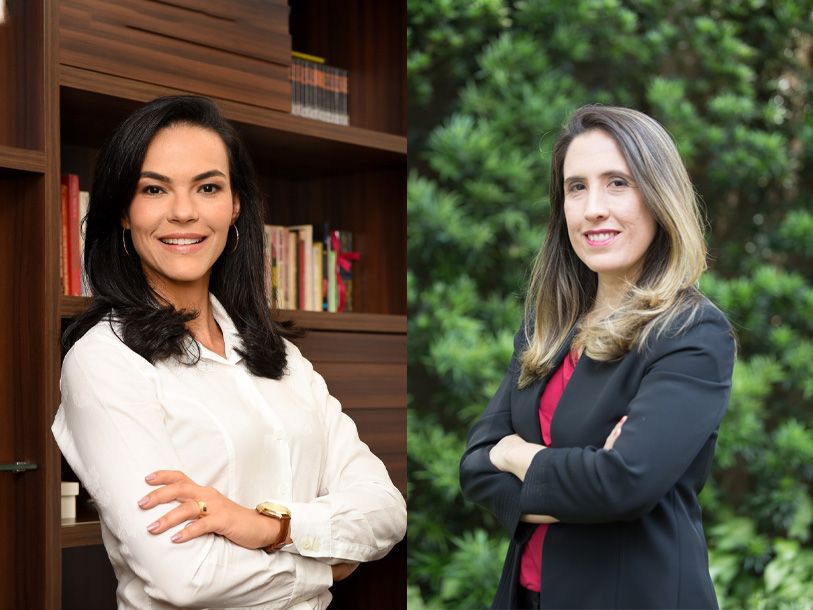The Study was sponsored by illycaffè and presents a proposal to reduce sexist practices

The inclusion of gender was the theme of an unprecedented research on the great gender Inequality in Brazilian coffee production. And the result was not very nice to find out. Despite being the largest coffee producer in the world, and 13% of the properties being managed by women, their role in national coffee production is undervalued in many aspects, despite all the progress made in recent years, when there was a significant increase in mobilization and sensitization toward women, along with coffee farming in the country, which allowed greater access to information, professional training and even improvement in the quality of coffee. This is what Professor Christiane Leles Rezende De Vita, from Universidade de Café Brasil and PENSA – Center for Agribusiness Knowledge, reveals, who we interviewed, together with Professor Raquel Soares, from Universidade de Viçosa, who led the research, and is one of Brazil’s, greatest gender experts.
Check out the interview with the researchers:
Grão Especial – How did the research was initiated?
Christiane De Vita – PENSA, the Agribusiness Knowledge Center, has had this project with illycaffè since 2000, called Universidade do Café Brasil. illy has a program similar to that in 26 other countries. But it is only here in Brazil that we do research for the coffee agribusiness, which is more focused on production. In other countries, research is focused on consumption, such as courses for baristas, etc.
In the beginning, we took courses for coffee farmers, and, over time, the work had an evolution and we, from Pensa and Illycaffè, saw that our greatest contribution could be in the production of knowledge. We started the research and this last one is the 16th. As the new research had the gender inequality as its theme, we invited Raquel Soares, Professor at Universidade de Viçosa (MG), to lead, as she is one of the greatest experts on gender in the country. Raquel has a degree in Business Administration from FEA, USP, a master’s degree from UFLA and a doctorate from UFMG.
Raquel studied femininity, gender identity with women in management positions and, shortly after completing her thesis, she did research on women in agribusiness management eight years ago, which gave rise to new studies, which are segmented by production chains, including at the coffee farming. And this involvement with women worker in coffee production led her to a network of researchers who were studying women in coffee shops in Brazil, which ended up giving rise to the book “Mulheres nos Cafés do Brasil”, carried out in partnership with Embrapa Café and the IWCA, International Alliance of Women in Coffee. And, since then, she has been working on this theme through research projects and also in social entrepreneurship.
Grão Especial – According to the survey, a quarter of coffee properties in the world are managed by women. What is the portrait of Brazil?
Christiane De Vita – In Brazil, which is the largest coffee producer in the world, the data are a little different. According to the latest census, 13% of coffee farms are female-owned. Now, considering the planted area, it is 9% of coffee production.
Grão Especial – Also according to the survey, we are 95th in the G11 group in terms of gender index. How to empower these women?
Raquel Soares – I see empowerment mainly as an economic result. The more women are involved in coffee farming, the better results we get, strengthening the chain. But in order to achieve this empowerment, first it is necessary to bring these women an agenda of relevant discussions on coffee farming and, although this number is smaller than in other countries, we are talking about the largest producing country. This means that 13% represents many people in the world coffee industry.
In second place, it is necessary to connect them to each other and to connect them with the Organizations that play the role of disseminating information and knowledge in coffee farming. Because empowerment also involves knowledge, which is power. And network is also power. Not only among women, but between them and organizations.
Christiane De Vita – We also identified that women usually have less access to information, to production technologies, such as the use of fertilizers, and even access to the internet, in addition to restrictions on funding. Putting all these factors together, it is clear that production is lower, you have lower productivity and this of course harms society as a whole. Imagine how much we could be earning, and not just them, but society as a whole, because there is a loss of value, a loss of production value, due to all that.
Grão Especial – That is exactly the point. In the report, you point out that if there was a greater gender balance in coffee farming, there could be an increase of 12 trillion dollars in global GDP, according to the McKinsey consultancy.
Raquel Soares – I would like to start by commenting on agro-industrial conservatism. What we could highlight about the increase in business is that it is related to the issue of succession and is also related to the challenge faced by farms that have only women in their management. This continuity is related to sustainability, since it affects the possibility of continuing the business, and makes farms often find it difficult to continue because women are unable to do it, because they do not have the proper access, the proper training or perhaps the acceptance. We also have to consider that we have countless successful cases in Brazil as well, but, in terms of business volume, it is important to have this perspective about the next generations. Because we are talking about a change in culture and that is the most significant one that we can imagine or want in terms of gender or issues involving women in coffee farming. To reach this potential economic impact that it generates on GDP, we need not only to think about dividing the production equally, but also think about increasing the production, encouraging an increase in the number of women and the number of new businesses related to women with this potential for economic contribution in the sector.
Christiane de Vita – We really need to change the culture. But cultural and social changes are very slow. Imagine how long it takes for this to be incorporated into new generations. Studies show that this cultural change can take from 100 to 1,000 years while the changes brought about by company strategies are much faster, as they are implemented many times in ten years. If people leave this without a strategy, companies that encourage it to be defined within themselves, by their employees, this will take a long time. The question that was asked from the beginning was: what can be done? How can we effectively reduce the gender inequality?
And all the work that was done, all the methodology, was all developed by Raquel. It was to define a category of analyzes and, from them, which strategies can effectively be implemented by companies and even by farms, by coffee farmers, because, in order for this to happen, companies and people need to get involved personally and professionally.
Grão Especial – There is a structural problem and you have suggested some solutions. What would they be?
Christiane de Vita – Our objective was to effectively highlight strategies that can be implemented in the various sectors of the agro-industrial system, in which we consider the input company, the rural production, industry, distribution and eventually the sale for the consumer.
Thinking about this system as a whole, what strategies can be implemented to reduce the gender inequality? This question guided all our work. From that, we did a literature review, to see what was already done, what research has already been done in Brazil and in the world, how is this panorama. From this, we selected people to interview, participated in panels. We call experts, by groups, such as coffee farmers, etc. where we interviewed about the gender inequality. We gathered witness and formed categories of analysis, and there were six categories of large areas – strategies and suggestions were made for sector and public policies for governments. A lot of work has been done so far, but our intention was to go one step further: how to reduce the gender inequality in coffee farming?
Raquel Soares – Our work continues to be purposeful research, although it is focused on the evolution over time, serving as a reflection on what has been changing. What is being done, in what direction does this point. Nevertheless, we need more direct interventions, to serve as measures that promote equality. Isolated actions do not have the power to actually contribute effectively to achieving equality.
Grão Especial – Regarding that, are you talking about Public Policies?
Raquel Soares – That is one of the measures that can be taken. Public policies are important, but private ones are also important. We based our panels on three main questions: those who already know something that is already being done, what are the advantages that these initiatives have brought to coffee farming and what else could be done?
When we raise these questions, we are also already identifying the perception of these experts invited to the panels in relation to what is done in the private sector, which has been more active in this issue than public policies, and even those that exist in the public sector are not very effective. Let’s talk, for example, about the National Program for the Strengthening of Women’s Family Agriculture (Pronaf is the acronym in Portuguese), which has a credit policy. In coffee farming, we have consulted the agents who participated and made other approaches; first we have very little data about it and, in addition, the data we accessed are not very encouraging. They show that they are not very effective in promoting gender equality. The research makes clear this need to ensure that these policies can reach the main stakeholders. In the case of coffee farming, that would be the producers. In this case, we still have to count on the private initiative as well.
Grão Especial – The term “Anchored Identities” caught my attention. Can you talk about it?
Raquel Soares – I am the author of this term. When I was doing research for the CNPQ National Council for Scientific and Technological Development (CNPQ is the acronym in Portuguese) it first appeared when I was making the transition from my urban themes to agribusiness. And, at the time, I did research with women in organizations such as unions, input cooperatives, etc. And I was struck by the way in which the woman presented herself: I am the daughter of so-and-so, I am the wife of so-and-so, I work helping my father! That caught my attention a lot. The process of leaning in the male figure for these women was shocking, and we needed to create a legitimate professional identity. Our question was: what is your role in this business? We talk about legitimacy, decision making and personal empowerment. This was in 2015, during a seminar in Cerrado Mineiro.
It is necessary to recognize the role of women in the success of agriculture. It is necessary to prepare them for success, for leadership, for entrepreneurship, recognizing legitimacy, wherever this woman is in the coffee industry.
Christiane De Vita – The female coffee farmer often has no role in regulating her profession. In many occasions, the woman works with her husband, but only he is recognized as a coffee farmer, and she is not. Afterwards, this woman does not even have the right to social services such as retirement, maternity leave, etc. This issue of lack of identity often leads to a concrete and also has an economic problem. As she is not registered with the INSS as a coffee farmer, when she goes to apply for retirement, she simply can’t do it.
Raquel Soares – We have to point out this: I see the issue of patriarchy as a problem that is male chauvinist in its origins, in the sense that it is inherited by family succession with regard to land. I think that it’s the point that originates what becomes a problem in the whole chain Because if we want to talk about cooperatives, unions, organizations and often companies, even large multinationals, first we need to talk about the base, the origin, which is still related to the land issue in Brazil.
Family succession, in other words, privileges the son, who inherits the farm, and that has always been the tradition. This is processed in the need to bring it up and put it in a way that the problem appears in an updated way. Let’s look at the very short term: male and female roles have already changed a lot. An important vector of this change is the increase in the level of schooling of these women. Even in the areas of agricultural sciences. Today there are women working in research, in marketing. It has changed, we need to update the way of doing and talking about this genre. Do they have the right to be there?
Grão Especial – Female work in rural areas is help, not work, right? But none of these conclusions are a surprise, right? What are the suggested actions to reverse this situation?
Christiane de Vita – This is a key point; we are going to raise several strategies to explain and publicize our work. Our job now is to disseminate these strategies. For it to change, people will have to implement it. Today’s coffee farming is very different from the old one, slave farming. Today’s farmers are rural entrepreneurs, they are well tuned, looking for quality, concerned with the environmental issue, now this leap is missing, we bring suggestions for them to think,
How they can collaborate, even when raising children. Parents need to question themselves, because they don’t stimulate their daughters to work on the farm and only their sons. What can be done at home? How can we start to change this generation? Our job is to question that. I keep wondering about that all the time.
Grão Especial – Another important point is that the empowerment of these coffee women, according to the research, necessarily involves women’s associations. That’s right?
Raquel Soares – I think female empowerment goes through these women’s associations, but that alone doesn’t solve the problem. It is necessary to call men to this discussion in the sense that, today, the data show that we still have a large majority of men in the decision-making of these organizations that are part of the agro-industrial system. Public and private policies need to reach these men and they need to be sensitive to the matter of gender equality. That is critical.
Christiane de Vita – Associations and cooperatives are catalysts, they accelerate this process, if they are thought of in this way. The properties are far from each other. It needs to increase these women’s knowledge and access to knowledge. I see it as a priority. Traditional cooperatives need to rethink. Are they really looking for women? Most of them are not. And women’s cooperatives have had a lot of impact; they make a difference in the lives of these women.
Raquel Soares – That makes a difference in the lives of these women, and society as a whole wins. It’s an impactful change. I always like to mention this, we need to understand people, a new generation, with a new mentality. Talking about women is a crucial issue for sustainability in coffee farming, not only in Brazil but throughout the world.
The complete survey is available for download on the Universidade do Café website: http://universidadedocafe.com/publicacoes/cadernos-universidade-do-cafe-vol-12-2022



